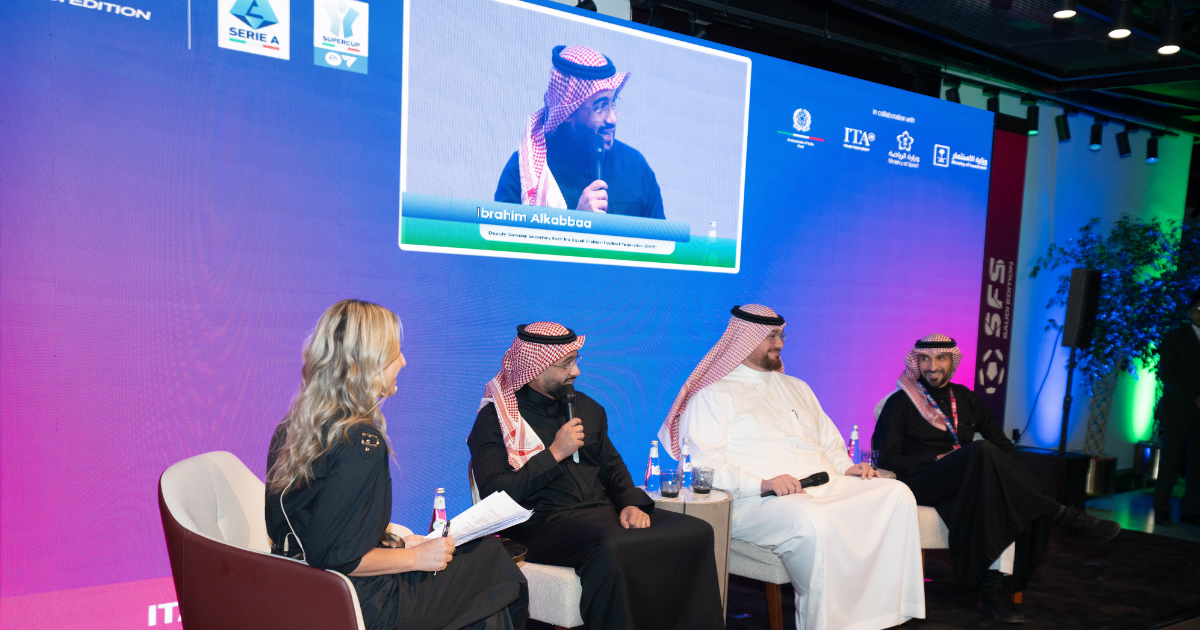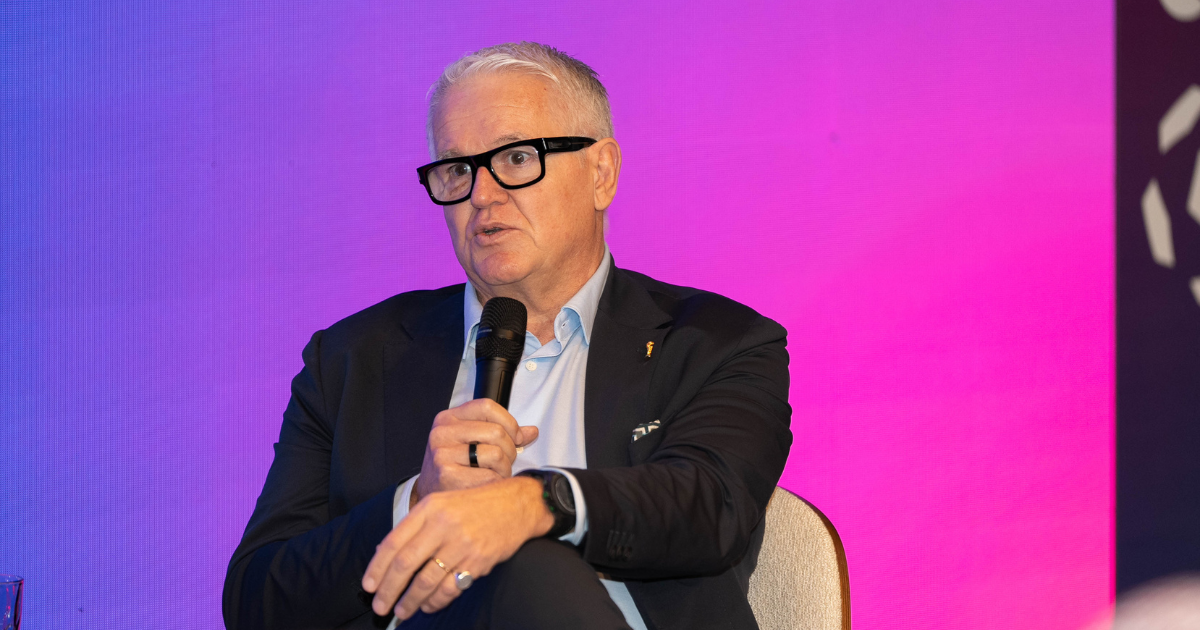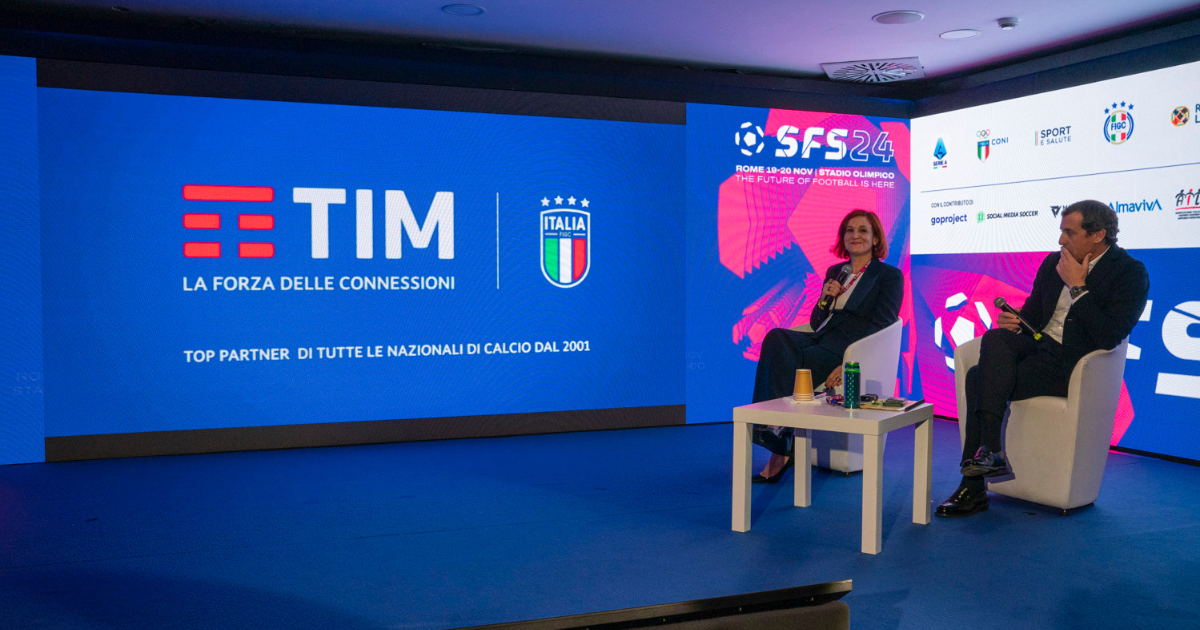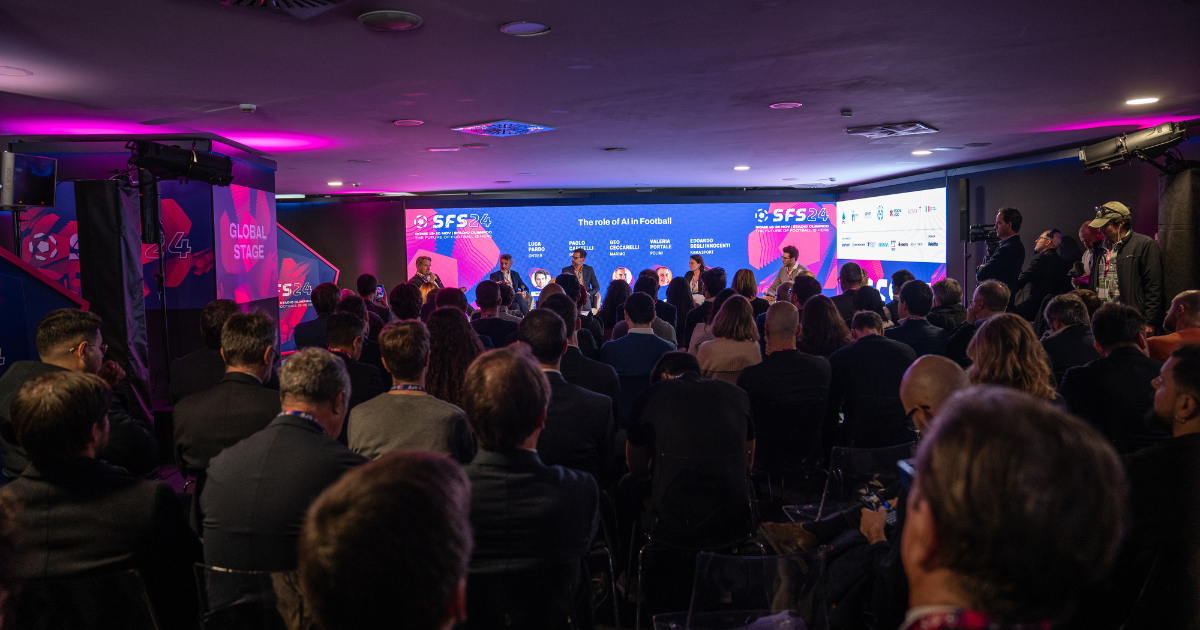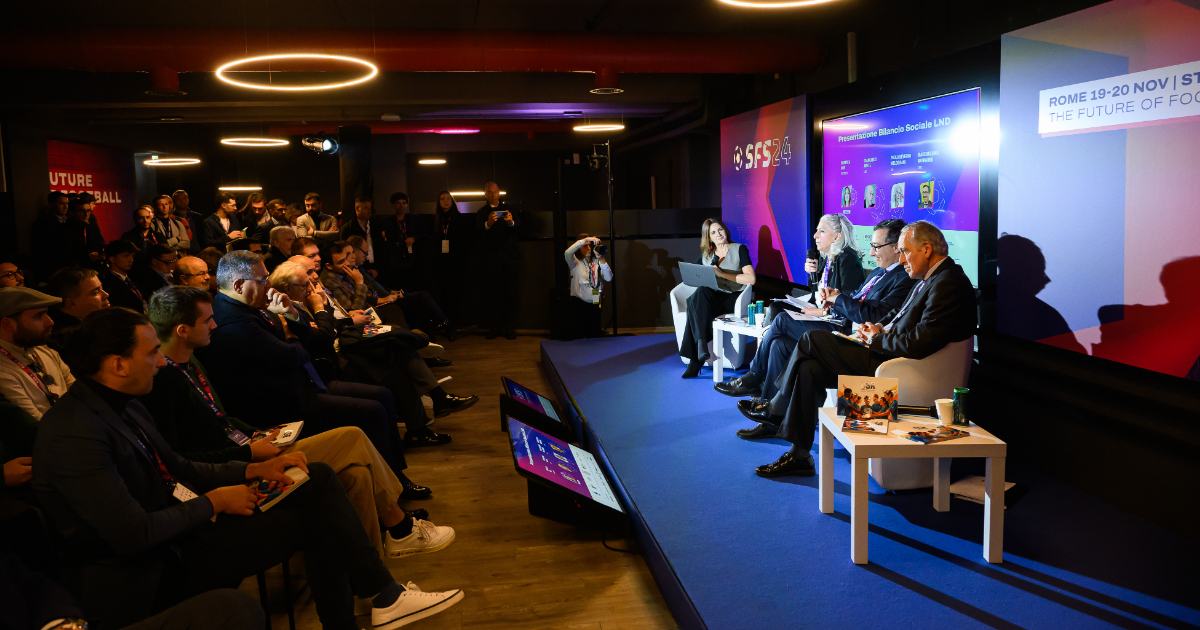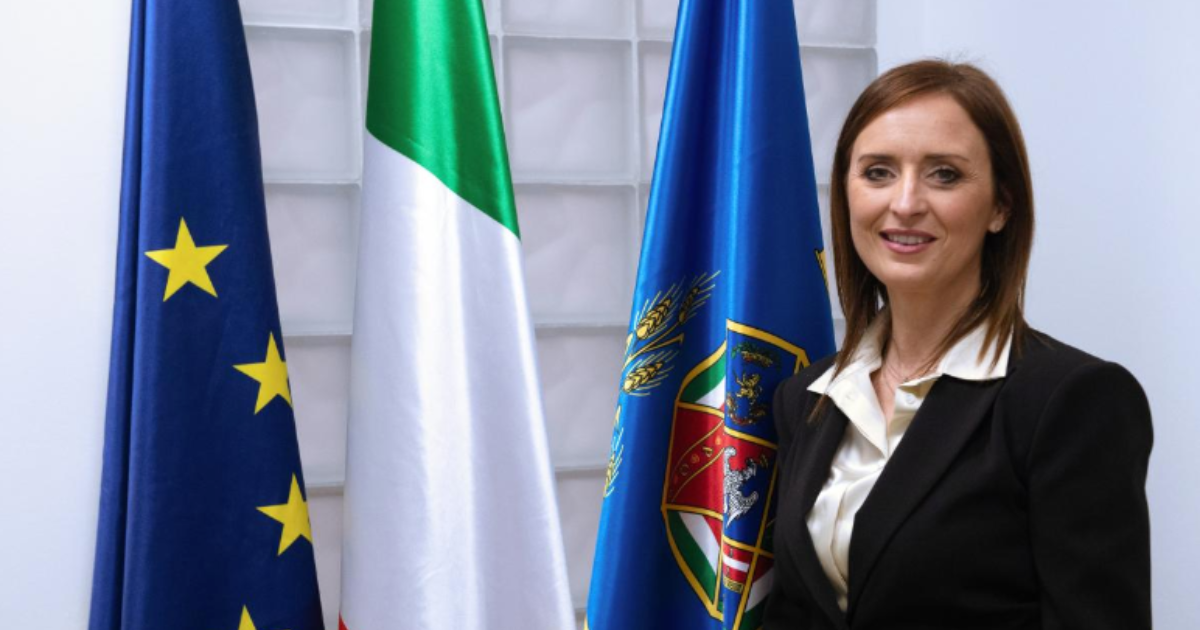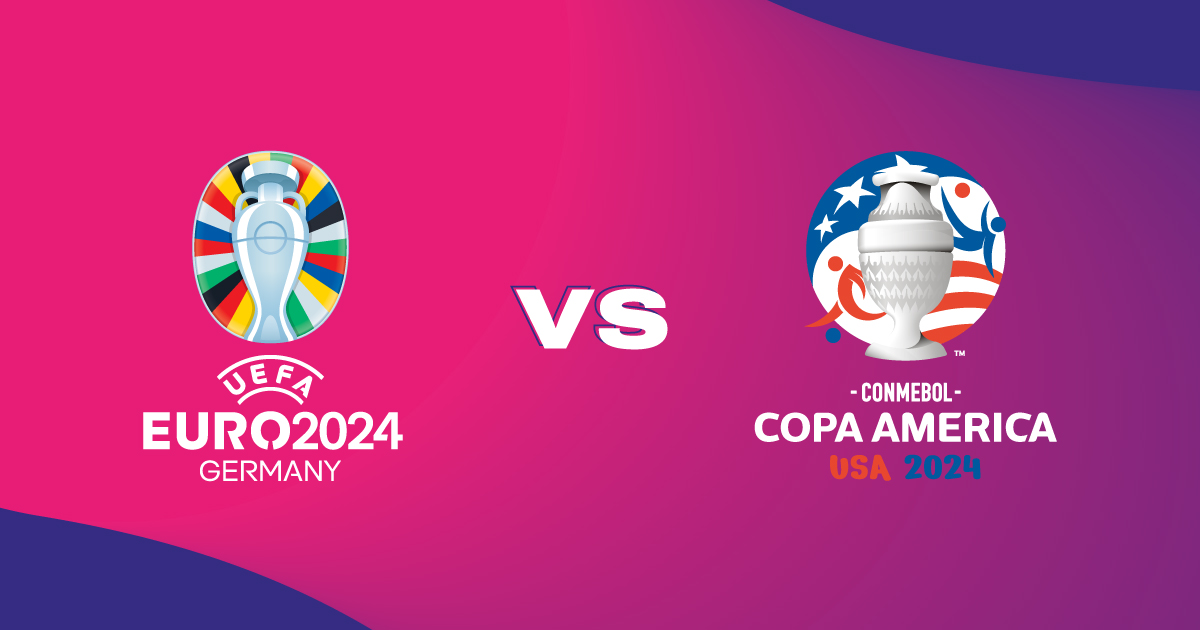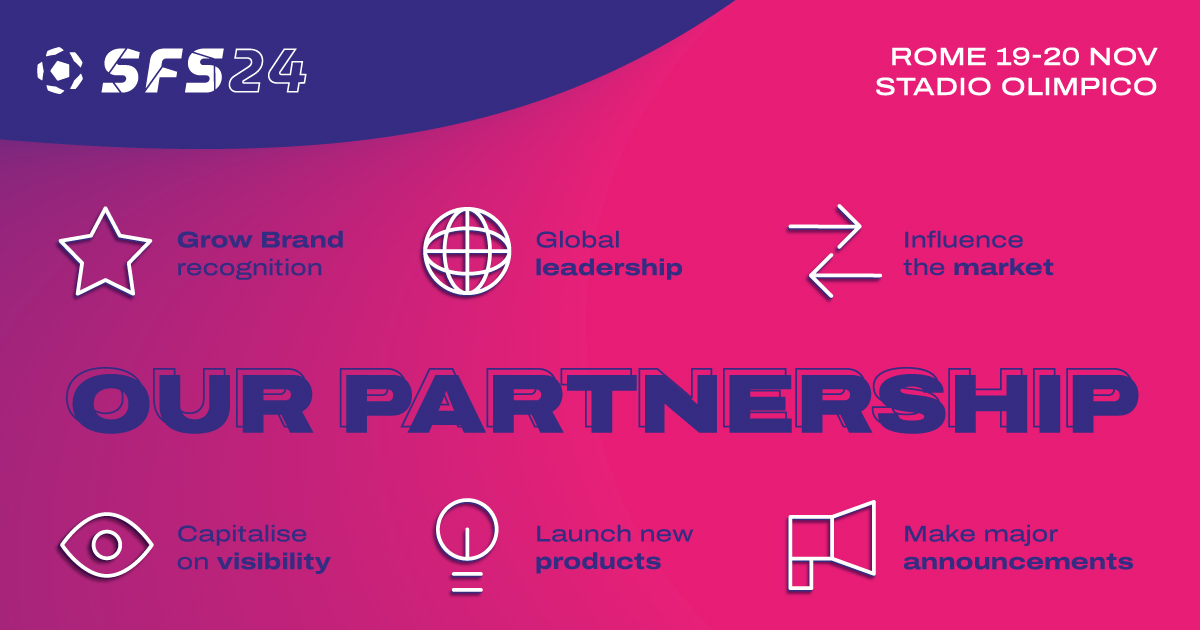“Sport, and the tourism associated with it, is an integral part of Saudi Vision 2030. The ultimate goal is to make the Arabian Peninsula an attractive sports platform and a global tourism destination“, stated the Deputy General Secretary of SAFF Ibrahim Alkabbaa during the session ‘Sports Tourism and Major Events: Opportunity and Impact of Football Competitions‘ held as part of the SFS Saudi Edition.
To discuss it with him, Laith Khayyat (Executive Director of Strategy and PMO – Mahd Sports Academy), and Mohammed Basrawi (General of Marcoms – Saudi Pro League). The three speakers highlighted the close connection between sports and tourism, which the government strategically prioritizes. This focus is driven by cultural motivations —football, as a universal language, attracts a diverse audience, offering an opportunity to showcase Saudi society’s rich history and its ongoing evolution — and by economic reasons.
Since around 2018, the country has hosted nearly 150 different sporting events, heavily emphasizing the sense of community and aiming to cultivate individuals who love sports, especially football. The main pillars remain inclusivity and diversity, with significant progress made in women’s football over the years. The Mahd Sports Academy — established to develop regional youth sports sectors — launched women-only tryouts two years ago, which saw nearly 54,000 girls participate to showcase their talents.
As Laith Khayyat stated, the academy adopts a comprehensive 360-degree approach, starting with schools and extending to areas such as nutrition, catering to the needs of many international youth who enroll each year. Additionally, the focus is not limited to football. Taekwondo, handball, athletics, and judo are among the disciplines receiving specific investments from the academy, which aims to be a driver for young talent and provide them with the right global exposure.
SFS Saudi Edition: Making the Arabian Peninsula an attractive sports platform and a global tourist destination
"Sport, and the tourism associated with it, is an integral part of Saudi Vision 2030. The ultimate goal is to make the Arabian Peninsula an attractive sports platform and a global tourism destination", stated the Deputy General Secretary of SAFF Ibrahim Alkabbaa during the session 'Sports Tourism and Major Events: Opportunity and Impact of Football Competitions' held as part of the SFS Saudi Edition. To discuss it with him, Laith Khayyat (Executive Director of Strategy and PMO – Mahd Sports Academy),
SFS Saudi edition: Football, Investments and new global visions
At the SFS Saudi Edition, within a framework of internationalization and enhancement of the Serie A product, globally renowned guests from the football industry participated. Carlo Baldocci, the Italian ambassador to Saudi Arabia, Ezio Maria Simonelli, the newly elected president of the Serie A League, and Abdulrahman Justaniah, Deputy Minister for Strategic Planning and Investments at the Saudi Ministry of Sports, opened the scheduled panels with institutional greetings addressed to the audience and those streaming the event on the Summit's
TIM and FIGC: 25 Years of Winning Connections in Sports
The partnership between TIM and FIGC is a long-standing one, soon to celebrate its 25th anniversary. A journey that began in 1999 between two similar organizations, both representing Italian identity and committed to values such as sports and solidarity. During a panel moderated by DAZN journalist Barbara Cirillo, Giovanni Valentini – Head of Revenue Area and Deputy General Secretary of FIGC – and Sandra Aitala – Head of Brand Strategy and Commercial Communication at TIM – reflected on the initiatives promoted
Exploring AI’s Role in Football at SFS24
On the first day of the Summit, several experts and professionals specializing in artificial intelligence analyzed and delved into the role it will play in the football industry. Hosted by lawyer Luca Pardo, the panel featured Valeria Portale (Researcher, School of Management, Politecnico di Milano), Geo Ceccarelli (Chief Information Officer, Marimo), Edoardo Degli Innocenti (CIO, Kama Sport), and Paolo Capitelli (Communities of Practice Director, Reply). The use of data in football dates back to the era of Arrigo Sacchi’s AC Milan,
The social report of the LND
As part of the SFS24, the National Amateur League presented its Social Report. Present at the Panel, moderated by Sky journalist Roberta Noé, were the President of the League Giancarlo Abete, the head of CNEL Massimiliano Monanni and the Rai reporter Paola Severini Melograni. President Abete explained with satisfaction the numbers and projects carried out by the main body of amateur football: "The League currently boasts 11,083 clubs, 62,739 teams, over 1 million athletes of which 700 thousand are under the
Tourism and Sports of the Lazio Region, Elena Palazzo attending SFS24
We are pleased to announce the participation of Elena Palazzo, Lazio Region's Councillor for Tourism, Environment, Sports, Energy Transition, and Sustainability, at the seventh edition of the SFS. The event, scheduled for November 19 and 20 at the Stadio Olimpico in Rome, has become a cornerstone of the football industry, attracting both institutional and non-institutional stakeholders of national and international prominence.In particular, sports tourism plays a crucial role within the SFS manifesto-guide (available here). Palazzo, already Councillor for Environment, Sports, Energy Transition,
Euro 2024 vs. Copa America 2024: A Comparative Analysis of Football Teams’ YouTube Engagement
Comparing the data of Euro 2024 teams with Copa America 2024 teams provides an insightful view into how top national football teams perform online, particularly on YouTube, based on data from BuzzMyVideos. Euro 2024 Teams England - Subscribers: 2.66M - Total Views: 943.71M - Comment: England leads the digital space with the highest number of subscribers and total views, reflecting a strong online presence that mirrors their on-field performances. France and Germany - Strong Engagement: both teams show significant engagement, indicative of their solid football performance and popularity among
Strategic investment for companies: why partnering with the 7th edition of SFS matters.
This year marks the 7th edition of SFS. Over 7 years, it has been a platform for meetings, networking, knowledge sharing, and insights into the future of the football industry. Organized by Go Project and Social Media Soccer, the event will take place on Tuesday, November 19th and Wednesday, November 20th, 2024, at the Stadio Olimpico in Rome. Within the context of the football industry, supporting SFS represents a unique opportunity within a corporate communication strategy. It allows brands to associate



